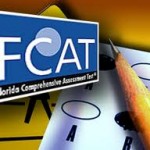The Department of Education (DOE) continues to press its testing contractor for penalties for late delivery of test scores, adding more than $11 million on Friday to what it says NCS Pearson must pay for damages.
 Pearson, which acknowledged problems in delivering the test scores, has already paid more than $3 million.
Pearson, which acknowledged problems in delivering the test scores, has already paid more than $3 million.
But Education Commissioner Eric Smith on Friday demanded another $11.7 million in penalties for additional problems, and ordered the company to deliver the money no later than Aug. 6. The additional penalty is for late delivery of math and reading FCAT results for grades 4 through 10 and science results for grades 5, 8 and 11, Smith said.
“Pearson’s usage of unproven technology systems this year has caused great turmoil for our parents, teachers, administrators and other education stakeholders and I remain committed to holding the company fully accountable for these disruptions,” Smith said, adding that if it turns out that it costs districts more than expected to deal with the problems, he’ll go to the company for that money too.
He also said company officials would appear before the state Board of Education in September to answer questions about the delays and explain why the company should keep its contract.
“I have firmly impressed upon Pearson that failure to meet their contractual obligations is not an option,” Smith said.
A spokesman for Pearson, Adam Gaber, said in a statement that the company would make good on “substantiated, unexpected costs,” due to the delay.
He also defended the company’s technology – it delivers testing and grading services in several other states – but again acknowledged the company’s shortcomings with the project in Florida.
“Pearson uses quality technology to conduct its testing, scoring and reporting functions,” the company statement said. “Our technology is sound. In short, as previously communicated, the delay was due to human factors in underestimating the requirements to customize our core technology for Florida.
“As we began the process of testing and configuring our systems to support FCAT and the requirements of the department, it became clear to us that we needed to make changes, and these changes took additional time. As a result we fell behind schedule.
“Throughout the process our number one concern has always been the accuracy of the data,” Pearson said. “The FCAT scores are valid and accurate.”
NCS Pearson signed a $250 million contract with the state in 2009 to provide scoring of the FCAT until 2013. Harcourt Assessment, acquired by Pearson in 2007, had provided similar services related to the FCAT since 2000.
The Department of Education has contracted with the National Center for the Improvement of Educational Assessment to check the FCAT results, which some districts have also questioned in a matter unrelated to the result delays. The results are also being reviewed by a Pearson subsidiary that was signed up to check the company’s work as well.
By David Royse
The News Service of Florida


